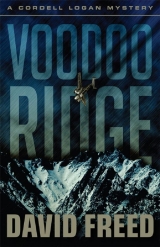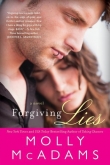
Текст книги "Voodoo Ridge"
Автор книги: David Freed
Жанр:
Триллеры
сообщить о нарушении
Текущая страница: 12 (всего у книги 17 страниц)
“You got any ID on you?”
I slipped him my driver’s license and a business card. The door closed.
“A flight instructor?” I could hear him slip the chain off. The door opened wide. “You’re a flight instructor?”
“I am.”
“Hell,” he said, standing there in his stocking feet. “I was thinking about taking some flying lessons. Soon as I save me some money.”
“Come up to Rancho Bonita. We’ll make a pilot out of you.”
“What’s this about Chad?”
“Can I come in?”
Murtha glanced at the vodka jug in my hand.
I gave it to him.
“Welcome,” he said, stepping back with a grand, exaggerated sweep of his hand, “to the Taj-fucking-Mahal.”
His apartment was one room. Toilet and shower stall partitioned by a hanging green bed sheet. Soiled clothes strewn about the floor. A brown corduroy foldout couch, a card table and two folding chairs. A red velvet recliner that looked like it had been retrieved from some curbside. A Lynyrd Skynyrd poster. A fifty-inch flat screen TV resting on cinder blocks.
“Nice crib you got here, Jethro.”
“Yeah, right. Have a seat.”
I parked myself at his card table while he fished a chipped blue ceramic coffee cup out of the sink, rinsed it out, and filled it with vodka.
“You want one?”
“No, thanks. Why’d you run from me?”
“Thought you was parole. Didn’t feel like getting piss-tested today.” He gulped some vodka. “What’s so important, you hanging around here for four hours, wanting to talk to me about Chad?”
“I was hoping you’d tell me.”
He wiped his mouth with the back of his left hand. “The little prick didn’t tell you I still owed him money, did he?”
I said nothing, studying Murtha’s face and body language, looking for signs of obfuscation. I saw none.
“Chad’s dead,” I said.
He paused in midgulp and chuckled, like he thought I was kidding around.
“Sure he is.”
“Outside Lake Tahoe. He was shot. A little more than a week ago.”
Murtha studied me.
“Are you bullshitting me? He got shot?”
I nodded.
“Shit.” Murtha downed the rest of his drink, refilled it, and settled into his red recliner, making a face like his lower back hurt. “I should’ve seen it coming, man.”
I said nothing.
More than a month had gone by since they’d last spoken, Murtha said. Chad had called to tell him that he’d been hired by his uncle Gordon at minimum wage, catering to rich assholes at the Lake Tahoe airport. Chad had said he hated the work.
“I told him, ‘Hey, at least you got a job,’ ” Murtha said. “Steady work for ex-cons, that don’t come along every day, you know?”
I nodded.
“Don’t get me wrong,” Murtha said, “Chad wasn’t complaining none. He said his uncle was letting him sleep on a cot where they keep the airplanes or some shit. Wasn’t even charging him nothing to stay. Free rent. Beer money. Sounded like a pretty sweet setup to me. But, like I said, I didn’t see it coming. Should’ve said something to him. Only I didn’t, goddammit.”
“Tell him what, Jethro?”
“To watch his back. His uncle Gordon? The dude’s dirty as they come. Up to all kinds of nasty shit.”
“How do you know that?”
“Chad told me.” Murtha propped his hands behind his head and his feet on the floor in front him, facing me directly – body language that conveyed openness. “I’ll tell you something else he told me, too. You know Iran?”
“I’ve heard of it a time or two.”
“Yeah, well, Chad’s uncle, he’s running some kind of scam with some hardcore Iranian dudes living up there in Tahoe. It had Chad freaked the fuck out.”
“What kind of scam?”
“He wouldn’t tell me. Too scared.” Murtha lit a Camel, exhaled smoke through his nose, and eyed me through blue tobacco haze. “So what are you doing here, anyway, Mr.… Logan, is it?” he said, glancing at the business card I’d given him. “Chad worked at an airport. You’re a flight instructor. That tells me something.”
“It tells you nothing.” I got up and headed for the door. “Thanks for your time, Jethro.”
“I’m definitely interested in taking flying lessons,” he said. “Soon as I make some bank.”
“Or rob one.”
“Exactly.”
He grinned as I left.
* * *
So Chad Lovejoy’s Uncle Gordon was up to no good. I’d wondered about him all along. Murtha’s insights gave me new direction, new hope, a viable lead to follow. Walking to my truck, I was feeling reenergized, almost exuberant, when my phone rang.
“Logan.”
“It’s Matt Streeter.”
I could feel my pulse quicken.
“What’s up, Deputy?”
He asked me where I was.
“I’m in LA. Why?”
“How soon can you make it up to Lake Tahoe?”
His voice sounded different, an odd flatness to it.
“Why?”
“I’d prefer we talk in person.”
“I’d prefer we talk now.”
Streeter paused, as if gathering his courage.
“We’ve located some remains.”
SEVENTEEN
With the Duck still suffering electrical system issues and out of commission, I drove through the night as fast as my truck would carry me from Los Angeles to South Lake Tahoe. Four hundred and eighty miles. Nearly seven hours, excluding two brief pit stops for octane and caffeine. I focused on the far reaches of my headlights and fought to keep submerged the anguish that threatened to overwhelm me.
The drive was no scenic tour. The Golden State Freeway, which constituted more than three quarters of the route, runs the length of California’s semiarid Central Valley like a concrete spine. In daylight, it is a featureless, litter-strewn highway upon which most everyone flagrantly ignores the posted speed limit, anxious to escape as fast as possible the wasteland surrounding them. Driving the route in darkness might seem a blessing – but not when the eyes and brain are denied distraction. A man can keep his thoughts in neutral for only so long before his mind automatically slips back into gear.
Please God, Buddha, Allah. Don’t let it be my woman.
I passed a tractor trailer, a Kenworth, hauling a load of lemons. The lemons reminded me of the time a few weeks after we were first married when Savannah decided to bake me a meringue pie and left it in the oven too long. It looked like something left over from Hiroshima. She laughed at my teasing, a good sport, then went into the bathroom, locked the door, and sobbed. It was the last time she ever baked me anything.
I shouldn‘t have said what I said. You were doing something nice for me and I was a complete jerk. I’m sorry, Savannah. For what I did. For everything I didn’t do.
The road ahead seemed to blur. For a second, I thought the windshield had fogged up. Then I realized I was crying. I wiped away the tears angrily and drove on.
A light snow was falling as I turned off the freeway near Elk Grove onto US 50, south of what was once Mather Air Force Base, and began climbing into the rising sun. The highway remained ice-free for the most part, even as the weather turned colder. Air temperature lapses an average three and a half degrees for every thousand feet of altitude gained. I can’t say how cold it was on the valley floor a mile below me, but by the time I reached South Lake Tahoe a little before 0700, the digital thermometer outside Alpine Bank and Trust on the town’s far western approach showed eighteen degrees.
Streeter wanted me to contact him as soon as I pulled into town. I called from the bank’s parking lot. He was there inside of five minutes. He got out of his Jeep and into my truck with a manila file folder under his right arm, his expression grim.
“Thank you for coming up. I know it’s a long way on short notice.”
I nodded.
His jaw muscles were tight. He wouldn’t make eye contact. He no more wanted to do what we were about to do than I did.
“It’s all right,” I said. “Just tell me.”
He nodded, appreciative of my straightforwardness, and gazed down at the file folder now resting on his left thigh.
“Some of these pictures may be very graphic in nature to you. I apologize in advance.”
“I’ve been to a few rodeos,” I said as evenly as I could.
He hesitated, then handed me the folder.
I opened it. I had to force myself to breathe.
The first photos were of a woman’s sweater, a bra, a pair of panties, and a pair of brown suede boots. They’d all been badly burned.
“Do you recognize any of those garments?” Streeter asked.
“No.”
After the pictures of clothing came autopsy photos, more than a dozen in all. They were of a dead woman. Like her clothes, she, too, had been burned. What was left of her hair appeared to be dark red, like Savannah’s. Her face was charred, unrecognizable. Her nose was gone. Her eyes were gone. The jaw was parted. The teeth were white and perfect. Like Savannah’s.
“Where did you find her?”
“Down a ravine, south of town. A car caught fire. She didn’t have any ID on her. We’re having some trouble getting good prints, given the extent of injury. I figured you’d want to know.”
I flipped slowly through the photos. Burned hands. Long, elegant fingers, like Savannah’s. Burgundy fingernails, like hers. Burned legs. Blackened arms. The limbs really didn’t look like Savannah’s. Or did they? I couldn’t be certain. Nausea floated up from my stomach. I let out a breath, struggling to remain focused, trying not to cry.
“Were you able to establish a cause of death?”
“Not yet.”
“Was she violated sexually?”
“We won’t know that until the coroner comes back with his full results.”
A photo of the left leg caught my attention. A patch of skin on the inside of her upper thigh had been spared from the flames that had consumed much of the rest of her. When Savannah was a teenager, long before it had become a social requirement that every young person in America get tattooed, Savannah had gotten inked – a small, delicate red rose that took me by surprise when I first discovered it, kissing my way up her leg.
“You don’t strike me as the provocative, renegade type,” I told her at the time.
“You want provocative?” she said alluringly, both of us naked. “I’ll show you provocative.”
And then, to my great pleasure, she did.
I held up the photo of the leg and looked closer:
There was no tattoo. I suddenly felt light-headed.
“This isn’t Savannah.”
“Are you sure?”
I explained to Streeter why I was.
He sat back and exhaled. He seemed almost more relieved than I was, but I doubted it.
It was possible, he said, that the woman in the photographs hadn’t met with foul play, that she’d simply lost control of her car on a patch of ice and rolled into the ditch where her car caught fire. It happens all the time in winter, in the mountains.
“I’m sorry you had to go through this,” he said. “It’s just, we had to know.”
I told him what Jethro Murtha, the ex-con, had passed along to me about Chad Lovejoy’s uncle, airport executive Gordon Priest, and Murtha’s assertion that Priest was involved in some sort of scam with Iranian immigrants living in the Tahoe area.
“Did he tell you that Priest or these Iranians killed Chad?” Streeter asked.
“All he said was that Chad found out what Priest was up to and that Chad was spooked. I’m pretty certain he didn’t know the kid was dead until I told him.”
“I do not want you approaching Gordon Priest. Let us do our job. Is that understood?”
I nodded.
The deputy dug a phone out of the pocket of his green sheriff’s jacket and asked me for Murtha’s telephone number, along with the ex-con’s address. He typed them into the phone with his thumbs while telling me about the weapon that had been used to kill Chad Lovejoy.
Forensic examination showed that the bullets had been fired from a .40-caliber Glock, among the more common handguns on the market these days. The rounds, Streeter said, had been checked against ballistic databases in both California and Nevada to determine if the Glock had been used in any other crimes. No matches came up.
“Have you made any progress in finding Savannah? Anything tangible?”
“We still have plenty of people left to talk to,” the cop said, “but I think it’s safe to say at this point there aren’t any arrests imminent.”
I was rapidly coming to dislike anything and everyone, including Deputy Streeter. I was exhausted and hungry. My shoulders ached. My knee ached. The pounding pressure inside my skull felt like I was diving on a shipwreck.
“Did you get any sleep last night while you were driving in?” he asked me.
“No.”
“You’re more than welcome to crash at my place if you want. I’ve got an extra bedroom.”
Considering the depth of my exhaustion and the fact that motels don’t usually allow check-in before midafternoon, I thanked him for his hospitality.
“The least I could do,” Streeter said, taking a slip of paper out of the file, jotting down his home address, and handing it to me, “making you drive all the way up here for essentially nothing.”
Streeter roomed with Deputy Kyle Woo. He said he’d call to see if Woo was home, and to let him know I was coming over.
* * *
The two cops lived not far from the airport in a rented, three-bedroom, chalet-style house with a steeply pitched cathedral roof and a floor-to-ceiling moss rock fireplace. Their guest room, cluttered with moving boxes and exercise gear, was on the first floor, off the kitchen. The bed was a futon outfitted with a patchwork quilt that Woo said his grandmother had sewn.
“There’s towels on the shelf in the bathroom,” he said. “Help yourself to whatever’s in the fridge, assuming you can find anything that’s not moldy. We don’t do much cooking around here.”
“Sounds good.”
He was getting ready to go to work, strapping on his holstered Glock and sliding a hammerless .38-caliber Smith & Wesson, his backup weapon, into an ankle rig under the right leg of his uniform trousers.
“We’ve had some burglaries in the neighborhood,” Woo said. “Just remember to lock the front door and turn down the heat before you leave.”
“Will do. Thanks for letting me stay.”
He nodded, his affect flat, and left.
I curled up on the futon without taking my shoes or clothes off, pulled the quilt up around me, and closed my eyes. For the better part of an hour, I lay there, unable to sleep. Too tired. Too tortured, my brain filled with thoughts of Savannah. For lack of anything better to do, I decided to get up and get myself something to eat.
The stove looked like it had never been used. The refrigerator housed a variety of condiment bottles and jars – mustard, catsup, steak sauce – a quart of milk, a six-pack of Miller Lite, various vitamins, a deli package of mold-covered ham, and a Styrofoam takeout container with a leftover enchilada slathered in a congealed goo of green sauce and sour cream. A refrigerator for bachelors. Clearly, no women lived there. I grabbed the milk – miraculously not past its “use by” expiration date – found a box of Shredded Wheat in the cupboard above the dishwasher, a clean bowl and a spoon, and ate standing up over the double stainless steel sink.
I wondered about the emotionless, enigmatic Deputy Kyle Woo.
Chad Lovejoy had been shot with a .40-caliber Glock. Woo packed a .40-caliber Glock. When we’d first met, at the South Lake Tahoe Airport, Woo said he had often gone camping in the mountainous area where I’d spotted the downed Beechcraft, and where Chad’s body was found the next day. Woo’s sheriff’s uniform included military-style tactical boots. Somebody had left tread prints of military-style tactical boots in the snow at the scene.
None of that, of course, would’ve come close to explaining why Woo would’ve had any reason to murder Chad Lovejoy. And I knew of nothing even remotely to suggest that he’d disguised his voice, passed himself off as Australian, and that he was the killer who’d dubbed himself Crocodile Dundee. But that didn’t stop the cogs in my head from grinding in Woo’s direction. When you’re a hammer, as they say, all the world’s a nail.
I walked upstairs and down the hall, past Streeter’s bedroom, to Woo’s room.
A neat freak Woo was not. The bed was rumpled and unmade, cluttered with boxes of pistol ammunition, gym clothes, and a pair of thirty-five-pound dumbbells. A wet towel was draped over the brass headboard. The beige carpeted floor presented an obstacle course of running shoes, boots and more free weights. The only other piece of furniture was one of those pressboard, put-it-together-yourself dressers from Ikea that even Einstein would’ve found all but impossible to assemble without leaving parts out. On the dresser was a Bluray disc player. A flat-screen TV rested atop that.
The top drawer was crammed with underwear and socks. The middle drawer held boxes of ammo, a collapsible police baton, handcuffs, two holsters, and four pornographic DVDs, including one entitled, “An Officer and a Genitalman.” T-shirts were stuffed haphazardly into the bottom drawer.
Two of the T-shirts bore logos from pubs in Sydney, Australia – Lord Nelson and the Bavarian Bier Café on O’Connell Street.
Somebody probably gave him the T-shirts as gifts. Or maybe he picked them up as souvenirs on vacation. They don’t mean anything, Logan. Why can’t you ever give people the benefit of the doubt?
I put the T-shirts back, closed the drawer, and moved on to Woo’s closet.
Several uniforms hung in dry-cleaning bags that obscured the back of the closet. I pushed them aside to find propped against the wall an M-4 assault carbine with a laser site and collapsible stock. On the shelf above the carbine was a small plastic box with the word, “Glock,” stylishly embossed on it. I took the box down, set it on the bed, and opened it. Inside was a .40-caliber, semiautomatic identical to the Model 22 Woo carried on his hip. I grabbed a corner of the top sheet and, careful not to leave any prints, lifted the pistol out of the box, ejected the magazine and pulled the slide back to make sure that the firing chamber was clear. It was. I swabbed the muzzle with my little finger and held the finger to my nose: cordite. The weapon had recently been fired.
The pistol was still in my hand when I heard movement in the hallway and turned toward the doorway.
Woo was standing in a two-handed combat crouch, his semiauto leveled at my chest.
EIGHTEEN
“Drop the weapon.”
“It’s not loaded.”
“Drop it NOW!”
“You got it.”
I lowered the gun to the floor.
“What’re you doing in here?” Woo demanded.
My impulse was to ask him what he was doing back home. But when you’re standing uninvited in a cop’s bedroom after perusing his personal possessions, and you’re staring down the business end of his service weapon, the only proper response is a contrite one.
“I’m hunting a murderer.”
Woo eyed me through his gunsights and asked me what in the hell I was talking about. I laid out all the circumstantial evidence that had left me suspicious of him.
“You think I shot Chad Lovejoy?”
“Did you?”
He holstered his pistol, strode past me, and picked up the Glock I’d dropped on the carpet.
“Either you got some balls or you’re the dumbest guy on the planet, Logan, tossing my room, then calling bullshit on me without a gun in your hand.”
He put the Glock back in the box and returned the box to the shelf in the closet where I’d found it.
“What’re you doing back home? Thought you were going to work.”
“I came to pick you up. Sheriff wants to see you.”
“About what?”
“I’m not at liberty to say.”
“Is it about Savannah?”
“I’m not at liberty to say.”
“Well, what are you at liberty to say, Deputy Woo?”
“That the sheriff’s waiting there,” he said, his expression giving away nothing.
“ ‘There’ meaning where?”
Woo looked at me blankly, his face an emotionless mask.
“Sorry, I forgot. You’re not at liberty to say.”
The sheriff’s waiting there.
Reading tea leaves and Woo’s words, I convinced myself that the only possible reason the sheriff wanted to see me was to deliver the good news personally: Savannah had been found. She was alive and unharmed!
Then I remembered how long she’d been missing, and how the chances of surviving a kidnapping begin to plummet the longer the victim’s been gone. Whatever optimism I enjoyed vanished instantly – only to rebound just as quickly.
Maybe, I thought, the reason the sheriff wanted to see me in person was because his investigators had identified Crocodile Dundee. They’d taken him into custody, prepping him for my questioning him. Suddenly, I was fired up and depressed at the same time – pumped because they’d caught the monster; depressed because I hadn’t caught him myself, before they had.
I envisioned the interminable, dragged-out trial Savannah would have to endure. To what extent would we be expected to testify? Would I be able to contain myself, staring at Dundee from across the courtroom, or would I lunge, bailiffs struggling in vain to restrain me, while I happily ripped out his windpipe with my fingers?
Woo followed me into the hallway and pulled his bedroom door closed behind him. I apologized for having gone through his stuff. He offered no response.
I grabbed my jacket and followed him outside to his Wrangler, parked in the driveway. The snow was coming down again, swirling like white cornflakes borne on a hard wind. The air had a bite to it, and I could feel the skin on my cheeks burning from the cold. I thought I caught the wisp of a sad smile on his poker face as the deputy unlocked the passenger door for me. I took it as anything but a hopeful sign.
In silence we headed south and west out of town on the same two-lane highway Woo had taken that morning more than a week earlier, when we’d driven up to the trailhead to rendezvous with the sheriff’s search and rescue team. I didn’t ask this time where we were going. Maybe I already knew.
Don’t ask how long it took to get there. It may have been fifteen minutes. It might’ve been twice that long. I was focused on the frost that had collected on the outside of the passenger window, trying to keep my rising fears in check.
We crossed over a cascading stream, its banks dappled with patches of ice – the South Fork of the American River, the sign said. Beyond the river, on our right, was an unmarked dirt road rising north into the snow-covered pines. Woo put his signal on and turned up the road. Another hundred meters or so and our journey came to an end. Assembled in the roadway was a collection of sheriff’s vehicles, grim-faced deputies, perhaps a dozen or more, including Matt Streeter, and a coroner’s van.
What happened beyond that remains largely obscured in my mind. I remember my heart racing. I remember how time slowed to a crawl.
A tall, older man wearing a green sheriff’s parka gripped my shoulder as I stepped out of Woo’s Jeep. I recall neither his name nor his title. He said something about how the hardest part of his job was having to convey bad news to family members of crime victims.
I remember Streeter and other deputies watching me with sad eyes as the tall man led me to a shallow ditch running along the east side of the road. I remember the tall man saying something about kids hunting rabbits and finding instead a grave.
I remember looking down, very briefly, and seeing Savannah’s nude body. She was curled on her left side, the color drained from her mud-strewn face, her red hair matted with snow and dirt, splayed about her head as though she were underwater, her exquisite mahogany eyes gazing serenely at nothing, the white sclera red with ruptured blood vessels, the dark bruising around her throat, suggesting she’d been strangled.
I remember the gray duct tape binding her wrists behind her back.
“Do you recognize her?” I remember the tall man asking me.
“Savannah Carlisle Logan Echevarria,” I whispered, the best I could do. “We used to be married.”
I remember him saying something about how very sorry he was for my loss. At least I think that’s what he said. I was listening more to several ravens, cawing in the trees above us. I remember thinking, Those birds are trying to tell me something.
Tracking terrorists through forests and jungles, it was the birds which always let us know when we were closing in on our targets. The closer the target was to us, the more agitated the birds grew, or the more silent. Whatever those ravens were saying was beyond my ability to comprehend. All I really fathomed amid my shock and grief at that moment was the crushing realization that the only woman I’d ever really cared about was gone forever.
* * *
The bar on Lake Tahoe Boulevard was named McJ’s Irish Pub, but it was apparent that its owner had never set foot on the Emerald Island. McJ’s was a straight-up, ski-town beer hall with blaring rock music, antique toboggans on the walls, and two floors of tall stools and sticky tables packed with mostly twenty-somethings, all looking to hook up after a fun-filled day on the slopes. I’d gone there that night for two reasons. One, because it was an easy walk from the Econo Lodge, where I’d checked back in, too devastated to drive back to Rancho Bonita that night. The second reason was that I planned to get good and drunk.
I’d sworn off liquor after Savannah left me for Arlo Echevarria. Not even so much as a beer. That was more than seven years ago. But if ever there were a good time to nose-dive off the wagon, I convinced myself, this was it.
Camped out alone at a corner table, I stared down at the double shot of Cuervo the young waitress with the black lipstick had dropped off. I wanted so badly to feel the tequila burn all the way down my throat and into my stomach, to cloud my mind and help me forget as only tequila can, if only for one night.
I picked up the glass. I held it to my lips. I set it back down.
Over and over, the exercise repeated itself until sobriety ultimately won out. I never took a sip. Not because I feared that after so many years of being clean, I might end up in detox, and not because the Buddha warned that practitioners of his teachings should keep their minds clear and lucid at all times. No, what deterred me from getting smashed that night was unadulterated rage.
I couldn’t very well find and kill the man who’d murdered Savannah and Chad Lovejoy if I were inebriated.
“Hi.”
I looked up from my drink. Standing across the table, smiling at me, was a buxom, thin-waisted brunette in her mid-twenties. Gray-green eyes. Nice full lips. Black turtleneck. Black ski jacket. Jeans tucked into calfskin knee boots. She was no beauty queen, but nobody, as the old saying goes, would’ve tossed her out of bed for eating crackers.
“You mind if I sit here?” she said. “This place is crazy crowded.”
I gestured: have a seat.
“Great, thanks.” She pulled out the stool to my right and offered me her hand. “I’m Jessica, by the way.”
“Logan.” We shook. “You want some tequila, Jessica?”
“Sure.”
I slid my glass over. “Cuervo. Haven’t touched it.”
Bon Jovi’s “Wanted Dead or Alive” was playing on the bar’s megaspeakers.
“You don’t want it?” Jessica asked over the music.
I shook my head no.
“Can’t let premium liquor go to waste,” she said.
She slugged it down like a marine.
“Is Logan your first or your last name?”
“Last.”
“You come to Tahoe often?”
“Hardly ever.”
“You seem sad to me.”
“Do I?”
“You do. You have this, like, aura or something. It’s pretty creepy, really.”
I told her it was a long story, and that she seemed like too nice a young lady to be burdened by it.
“Well, whatever it is,” she said, resting a comforting hand on mine, “I’m really, really sorry.”
A tall, skinny white guy with dark, greasy hair came barging through the crowd, sloshing a sixteen-ounce glass of beer. Black jeans. Black hoodie. Black Oakland Raiders cap pulled down low over his ears, Compton gangster style.
“What the hell, Jessica,” he said accusingly as her hand quickly retreated from mine. “You said you were with me.”
“Dude, chill,” Jessica said. “I just needed a place to sit down, that’s all.”
I recognized him before he did me: Preston Kavitch, the panty-sniffing creeper from the Tranquility House Bed-and-Breakfast. Even in the dim light of the bar, I could see the blood drain from his face as he realized who I was.
“What’re you doing here?”
“I was just leaving.”
I stood to go.
“Thanks for the drink,” Jessica said.
“This guy trashed my parents’ house, and you let him buy you a drink?” Preston was pissed, slurring his words, a little drunk. “He thinks I killed his chick. Can you believe that?”
“He thinks you did what?” Jessica stared at him with her mouth open, then at me.
I walked on – or tried to, anyway.
“Hey, where you going, man?” Preston said. “I’m talking to you, asshole.”
Blame what happened next on muscle memory. He clamped his hand on my right arm as I walked past him. In one fluid motion, I drove my right elbow into his midsection, shrugging off his grip, turned back, and snagged his wrist, bending it outward. With no option other than following the direction of his wrist or feel it splinter like a turkey bone, Preston crashed to the floor as the après-ski crowd scurried to get out of the way.
“Did you see that?” he screamed to no one in particular, sitting on the floor and holding his wrist, writhing in pain. “He assaulted me!”
“You deserved it,” Jessica said as she slid off her stool and made her way toward the ladies’ room.
“Call the cops! I’m filing charges!” Preston shouted.
Everyone seemed to ignore him as I headed for the exit. Nobody tried to stop me.
* * *
The red message light was blinking on the room phone when I got back to the Econo Lodge. Gil Carlisle, Savannah’s mega-wealthy oilman father, had called, weeping. At the crime scene that morning, Deputy Streeter had offered to notify Savannah’s next of kin so that I wouldn’t have to. I’d given him Carlisle’s name. Streeter in turn apparently had given Carlisle my number at the motel. Carlisle wanted me to call him back as soon as possible, to fill him in on the details of his daughter’s death.
I had a moral obligation to do so. I understood that. I’d been married once to his daughter. I probably should’ve alerted him when she first went missing. It would’ve been the decent thing to do, certainly the less cowardly. Yet I hesitated. How do you explain to your former father-in-law, a captain of industry used to having his way in virtually everything, that the death of the child he loved more than anyone on this planet was fundamentally your fault? In what manner do you initiate that dialogue? I was too spent to sleep, too numb to cry. So I simply sat there, frozen and inert, and did nothing for a very long time – until the room phone rang, jarring me from my catatonic haze. I forced myself to pick up the handset.








